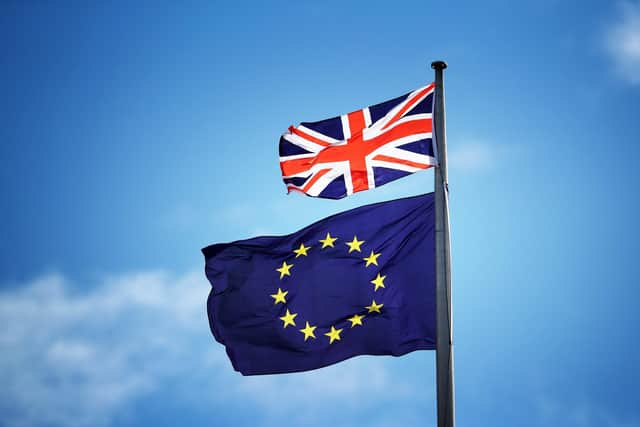How Brexit made it so difficult for SMEs like ours to trade with European partners - Mark Harris
New certification and import declaration documents appeared and each of the remaining 27 EU countries became free to apply a different set of import rules to ship goods to their country - 27 different sets of rules, regulations, and paperwork that we had to try to understand and use.
Each country was free to impose import document charges, for example Poland began charging a tax for each line of a document associated with an import from the UK.
Advertisement
Hide AdAdvertisement
Hide AdDocuments would also be interpreted differently even within the same country.


In Poland, we found that if one of our BundGuard products entered via airfreight at Warsaw airport with the documents the carriers told us to prepare, it often received an entirely different interpretation by Polish customs as the exact same product with the exact same documents entering Poland via Krakow airport.
The goods would be impounded, and extra fees had to be paid to have them released but we were never told which docs were wrong, right or why.
Our leak detection equipment was sent to Ireland and rejected by the carriers several times. They did not seem to understand the documents needed and it did not seem worthwhile to take shipments as small as ours because they could no longer make money. Our Irish distributor ended up driving via Larne in Northern Ireland to pick up the goods from our Barnsley warehouse.
Advertisement
Hide AdAdvertisement
Hide AdOur Belgian distributors told us they could no longer sell our products. They said if a warranty claim came about and the goods had to be returned to the UK, the tax implications in Belgium were so complex it wasn’t worth them spending time and money to sort.
We sent a Microsoft Data Centre in Denmark a piece of kit worth about £100. Danish customs impounded it and eventually told us it was due to incorrect documentation. We corrected it but rather than trying to spend time and money getting the first one out of customs, sent a second item. It was also impounded for reasons never explained. We have never been able to get either back.
One of the Microsoft engineers was Irish, so I flew to Ireland with the item in my luggage - as a personal item with a value below declaration levels – and lent it to the Irish engineer, who once inside Ireland i.e. the EU, could take it freely to Denmark. The cost, time and effort to achieve this were immense.
Dependent on us for their business, our Polish distributors pointed to a contract signed 10 years ago that had a clause saying in the event of a change in import rules from which new costs arose we had to pay the extra. We found ourselves potentially having to pay the costs our distributors had to pay to get our products into their countries.
Advertisement
Hide AdAdvertisement
Hide AdSo, despite the UK government assuring SMEs like us that it was ‘business as usual,’ in reality within a year of Brexit, our EU partners were telling us it wasn’t worth the hassle to distribute UK products.
Mark Harris is commerical director at Huddersfield-based Andel.